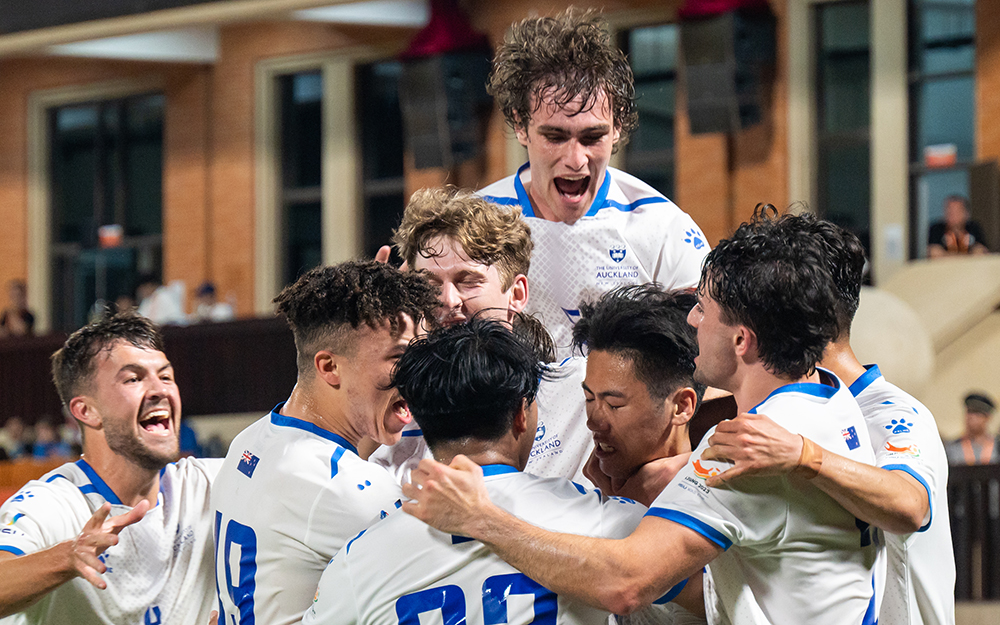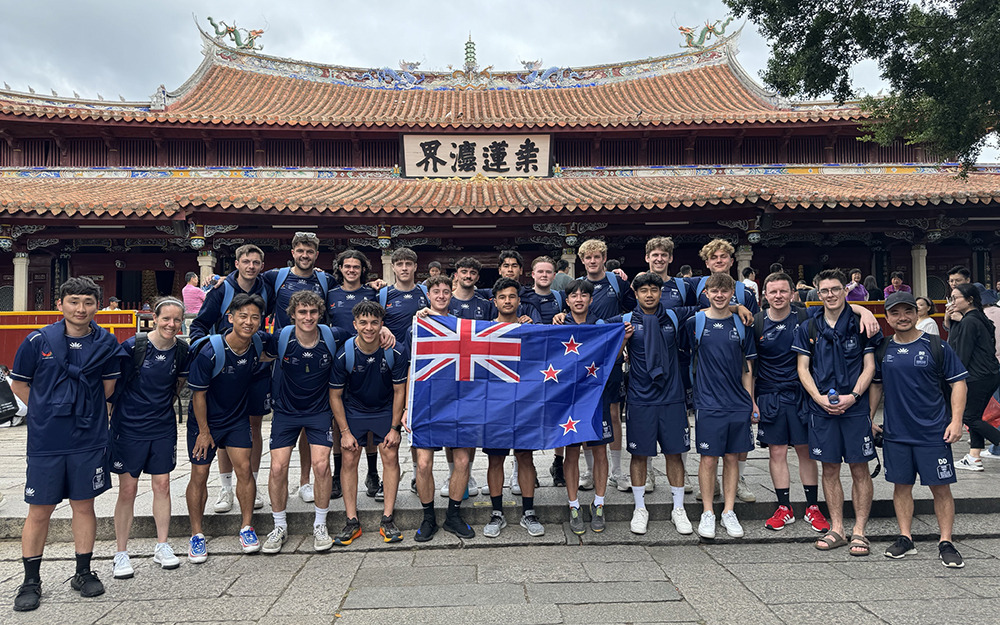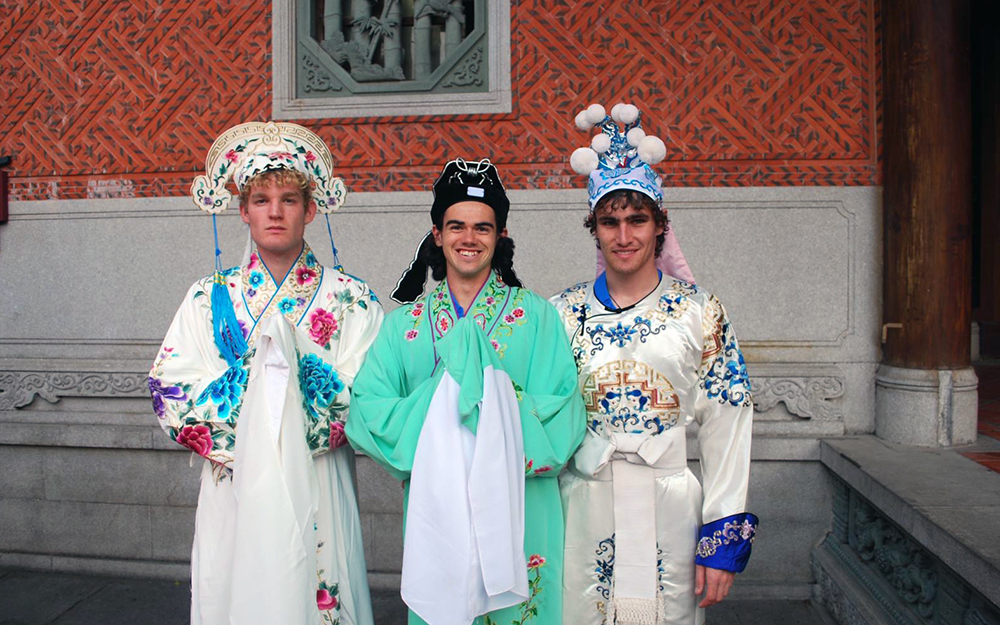
The team celebrate a goal
Of our team of 23, only two had prior travel experience in China, so most of us were embarking on an unknown adventure as we entered the “small” city of Jinjiang, home to two million people.
One of the group with previous experience in China was our knowledgeable Chinese-born staff member, Dan, whose guidance was invaluable as we embraced a sensory overload unlike anything we’d encountered in New Zealand.
The FISU University World Cup brought together teams from around the world to compete for football supremacy. The competition is a unique platform for aspiring footballers to gain exposure, develop their skills, and build lasting international networks. The team played against some of the best University teams in the world, which was a rich and rewarding cultural experience in its own right.
The opportunity to engage in various cultural experiences and explore historical landmarks was invaluable to our trip. Among the incredible cultural encounters were visits to the Kaiyuan Temple, Anping Bridge, and the Wudianshi Traditional Blocks, each offering a glimpse into the profound tapestry of China's heritage.
Travelling to Jinjiang's much larger neighbouring city, Quanzhou (population nearly nine million), our first destination was Kaiyuan Temple, a majestic site tracing its roots back to 686 AD.
Within its walls lay multiple temples and towers, still exuding spiritual reverence after more than 1400 years.
Our arrival at eight in the morning unveiled a vibrant scene as locals gathered in large numbers, highlighting the temple's enduring importance to the local culture.

The players were impressed by the architecture and cultural significance of Kaiyuan Temple in Quanzhou
With Dan’s insights, we learned about the temple's historical significance, particularly its association with Buddhist monk Hong Yi, a pivotal figure in establishing Buddhism in the Fujian region in the early 1900s. This experience deepened our understanding of China's spiritual traditions and traditional Chinese architecture and the role it still plays in the local community.
Later that day, we ventured to the Anping Bridge, a monumental architectural wonder spanning over two kilometres.
Bathed in the hues of the setting sun, this bridge stands as a testament to China's incredible engineering prowess. Originally connecting villages, it now stands surrounded by modern housing and city life, a symbol of China’s progress.
Our cultural exploration continued at the Wudianshi Traditional Blocks, a collection of historical structures including temples, ancestral shrines, and private homes.
Here we were treated to a captivating traditional Chinese performance by local school groups, showcasing mesmerising dances accompanied by traditional music.
Additionally, each of the team had the honour of donning traditional Chinese garments, both robes and headwear.

Trying on local traditional attire
These cultural experiences broadened our horizons far beyond the football pitch. They offered profound insights into China's diverse heritage, fostering a deep appreciation for its traditions and historical significance.
The opportunity for this team to travel outside of New Zealand to compete in a football tournament is something that was an incredibly valuable opportunity for growth among the team and for football at a tertiary level in New Zealand.
The support from the Asia New Zealand Foundation allowed us to embark on this remarkably humbling cultural journey, uniting us in an experience that surpassed the boundaries of sports.
Through our encounters at the Kaiyuan Temple, Anping Bridge, and the Wudianshi Traditional Blocks, we discovered the intricate threads that form China's vibrant cultural tapestry, leaving an indelible mark on our collective experience and fostering lasting admiration for China's rich heritage.
The Foundation's sports programme provides New Zealand sportspeople opportunities to grow more knowledgeable, connected and confident with Asia.
The Student Sports Fund provides opportunities for secondary and tertiary students to engage in cultural activities while travelling to Asia for sports-related activities.


